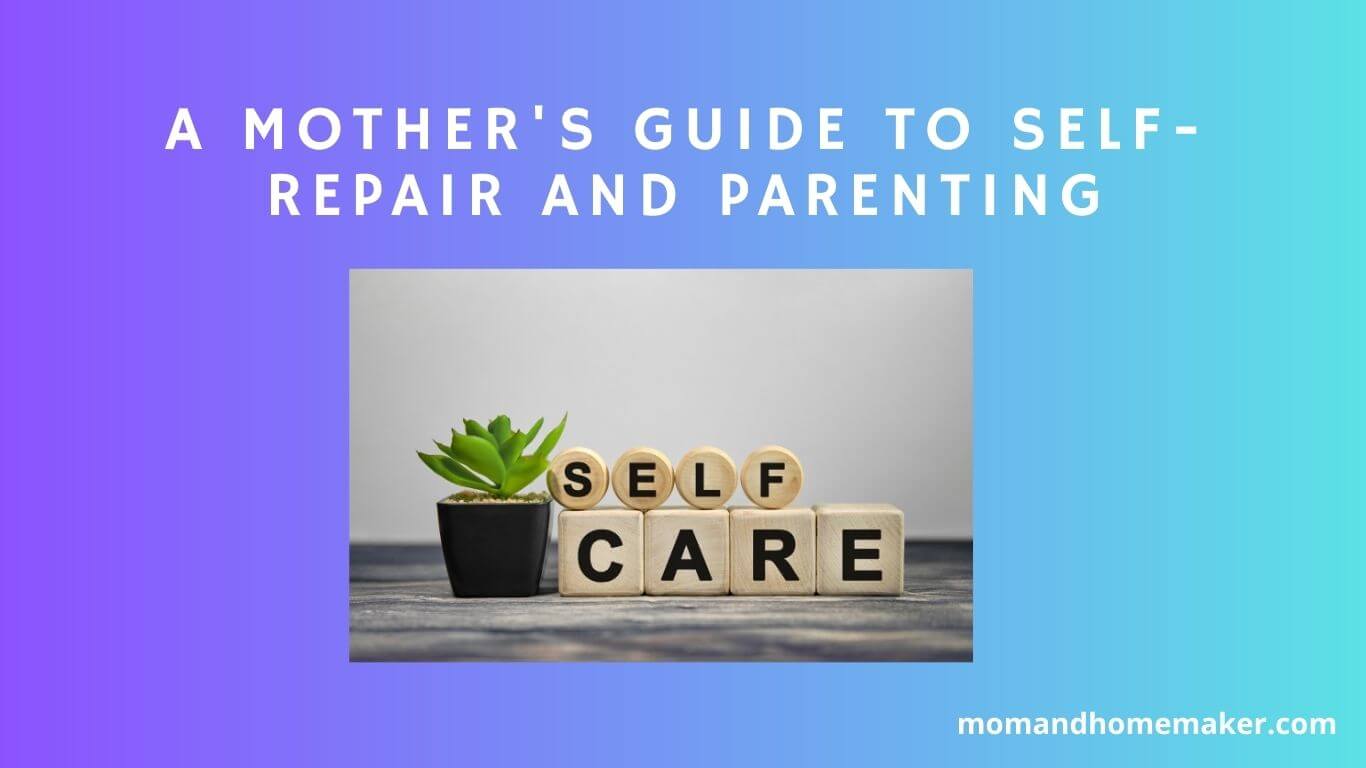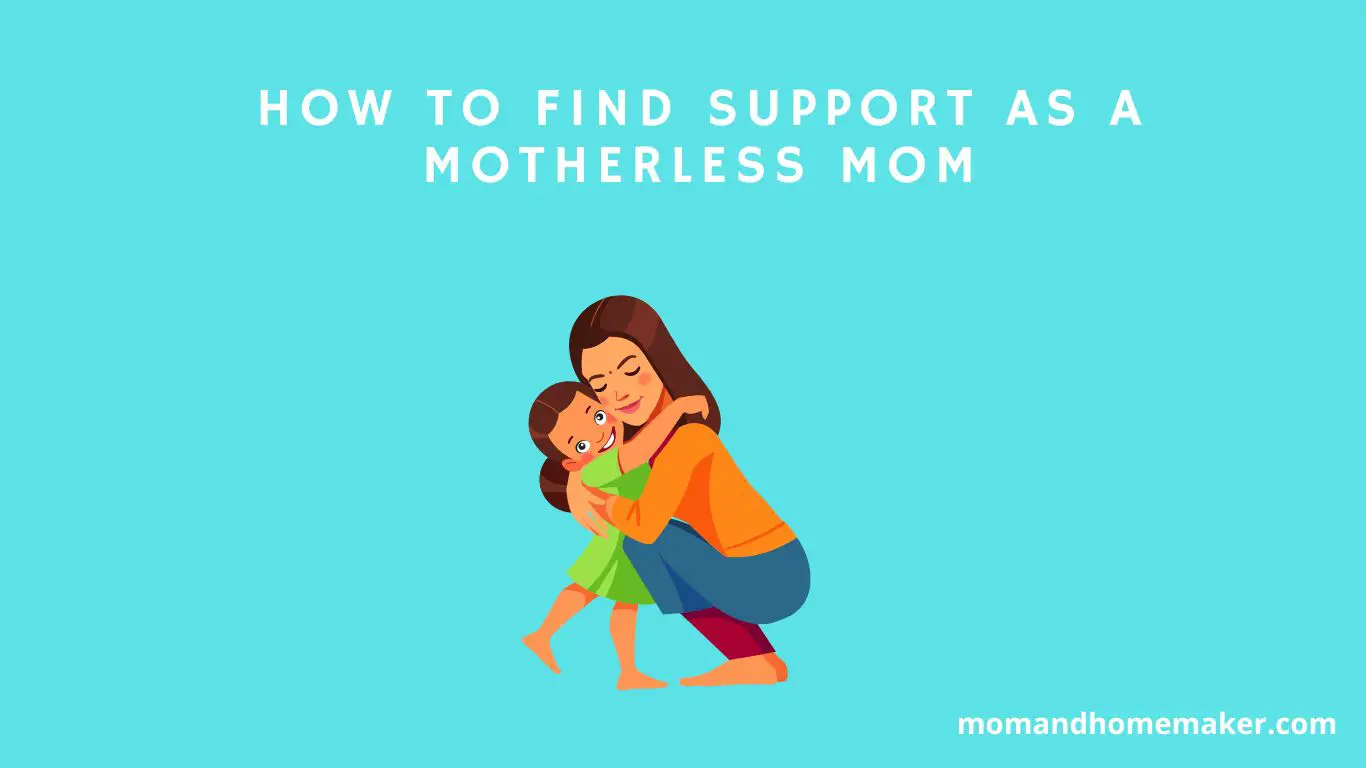As the saying goes, ‘Motherhood is a journey, not a destination.’ And for those battling chronic illness, this journey can be filled with unique challenges and obstacles.
Navigating the complexities of motherhood while managing your own health can feel overwhelming at times. But fear not, for you are not alone. This article is here to guide and support you as you navigate the intricacies of motherhood while battling chronic illness.
In these pages, you will find practical advice on prioritizing self-care and managing your symptoms, seeking support from healthcare professionals, and building a network of family and friends who understand and empathize with your journey.
We will also explore how to communicate with your partner and children about your illness, educating them about chronic conditions, and fostering empathy and compassion within your family.
Remember, that even in the face of chronic illness, motherhood can still be a source of joy and fulfillment. Together, we will celebrate the small victories, practice gratitude, and embrace the journey of motherhood with resilience and love.
Let us embark on this journey together, serving and supporting each other along the way.
Table of Contents
Key Takeaways
- Prioritize self-care and seek support from healthcare professionals to manage symptoms and improve well-being.
- Communicate openly with partners and children about the illness, using age-appropriate language.
- Build a supportive network of family and friends to provide emotional support and practical help.
- Adjust expectations and embrace flexibility in routines to accommodate fluctuating symptoms and prioritize what truly matters.
Understanding the Impact of Chronic Illness on Motherhood
As you navigate the challenges of motherhood with a chronic illness, you’ll quickly realize the profound impact it has on every aspect of your life. Managing guilt becomes a constant struggle. You may feel guilty for not being able to do everything for your children, for not being the ‘perfect’ mother you envisioned yourself to be. But it’s important to remember that you’re doing the best you can, and that’s enough.
Adjusting expectations is crucial. You may need to let go of the idea of being a supermom who can handle everything effortlessly. It’s okay to ask for help, to delegate tasks, and to prioritize self-care. Remember, taking care of yourself is essential in order to take care of your children.
The impact of chronic illness on motherhood goes beyond just physical limitations. It can also affect your mental and emotional well-being. You may experience feelings of frustration, sadness, and even anger. It’s important to acknowledge and address these emotions. Seek support from loved ones, join online communities of mothers with chronic illnesses, or consider therapy. Remember, it’s okay to not be okay all the time. Give yourself permission to feel and express your emotions.
Despite the challenges, navigating motherhood with a chronic illness can also provide valuable life lessons. You learn to prioritize what truly matters, cherish the little moments, and be resilient in the face of adversity. Remember, you’re not alone in this journey. There are others who understand and empathize with your struggles. Reach out, connect, and find solace in the support and understanding of others who are navigating similar paths.
Prioritizing Self-Care and Managing Symptoms
Juggling the demands of being a mom and maintaining your health calls for careful self-care and finding effective ways to manage your symptoms. As a mother battling chronic illness, it is crucial to prioritize self-care in order to be the best version of yourself for your family. This means listening to your body and recognizing when you need to rest and recharge.
One of the most common symptoms experienced by mothers with chronic illness is fatigue. It can be overwhelming and make it difficult to fulfill your responsibilities. To manage fatigue, it is important to establish a routine that includes regular breaks and rest periods. Taking short naps or practicing relaxation techniques can help replenish your energy levels throughout the day.
Self-care strategies are essential for managing both physical and emotional symptoms. Here is a helpful table to guide you in incorporating self-care into your daily routine:
| Physical Self-Care | Emotional Self-Care |
|---|---|
| Exercise regularly | Practice mindfulness |
| Eat nutritious meals | Seek support from loved ones |
| Get enough sleep | Engage in hobbies or activities you enjoy |
| Take time for relaxation | Practice self-compassion |
Remember, managing chronic illness while being a mom is a unique challenge, but with proper self-care and symptom management, you can navigate motherhood with grace and strength.
Seeking Support from Healthcare Professionals
To effectively manage your health and find the support you need, it’s important to reach out to healthcare professionals who can guide you through this journey.
Navigating motherhood while battling chronic illness can be challenging, but there are resources available to help you along the way. Here are some ways healthcare professionals can support you:
- Integrating alternative therapies: Healthcare professionals can help you explore alternative therapies that may complement traditional treatments. Whether it’s acupuncture, yoga, or herbal remedies, they can provide guidance on incorporating these into your self-care routine.
- Exploring online support groups: Connecting with others who are going through similar experiences can be incredibly beneficial. Healthcare professionals can recommend online support groups where you can find a sense of community, share your challenges, and receive emotional support.
By working with healthcare professionals, you can gain valuable insights and strategies to manage your chronic illness while also navigating the demands of motherhood. Remember, you don’t have to face this journey alone. Reach out to healthcare professionals who can provide the support and guidance you need.
Building a Supportive Network of Family and Friends
Building a supportive network of family and friends can be crucial for your well-being, as studies have shown that individuals with strong social support have better health outcomes and improved quality of life. When navigating motherhood while battling a chronic illness, having a reliable support system can make all the difference.
In building your support network, it’s important to consider the dynamics within your family. Reach out to your partner, parents, and siblings, and let them know about your challenges and needs. They can provide emotional support, help with childcare, and assist with household tasks when you’re not feeling well.
Friends can play an essential role in your support network. Surround yourself with friends who understand and are empathetic toward your situation. They can offer a listening ear, provide a break from daily stressors, and even help with practical tasks.
To help visualize your support network, consider creating a table like the one below:
| Family Members | Friends |
|---|---|
| Partner | Friend 1 |
| Parents | Friend 2 |
| Siblings | Friend 3 |
This table can serve as a reminder of the people you can rely on during challenging times. Remember, building a supportive network is not a sign of weakness, but rather a strength in recognizing the importance of receiving help and support from those around you.
Communicating with Your Partner and Children about Your Illness
Lean on your partner and children for support by openly and honestly communicating about your illness and its impact on your lives. Communication is key in navigating motherhood while battling chronic illness.
Start by talking to your spouse. Share your fears, concerns, and limitations. Help them understand your illness by explaining the symptoms, treatment options, and any lifestyle changes you may need to make. Encourage them to ask questions and express their own feelings. Together, you can develop strategies to manage your illness while still being present for your family.
Next, it’s important to explain your illness to your children in a way they can understand. Use age-appropriate language and provide simple explanations. Reassure them that your illness is not their fault and that you still love them just as much. Emphasize that although you may not be able to do everything you used to, you are still their mom and will always be there for them. Encourage them to ask questions and express their feelings too.
Remember, open and honest communication can strengthen your relationships and provide the support you need. By including your partner and children in your journey, you can navigate motherhood while battling chronic illness together.
Creating a Flexible Routine to Accommodate Fluctuating Symptoms
Start by creating a flexible routine that can adapt to your ever-changing symptoms. Managing fluctuating symptoms can be challenging, but with a flexible routine in place, you can better navigate motherhood while battling chronic illness.
Here are three key ways to create a routine that accommodates your fluctuating symptoms:
- Prioritize self-care: Make time for self-care activities that help manage your symptoms, such as rest, meditation, or gentle exercise. This will not only benefit your physical health but also your mental well-being, allowing you to be more present and engaged with your family.
- Communicate with your family: Openly communicate with your partner and children about your illness and how it affects your daily life. Encourage them to be understanding and supportive, so they can assist when needed. This will help create a supportive environment where everyone understands and respects your limitations.
- Embrace flexibility: Understand that your symptoms may change from day to day, and be prepared to adapt your routine accordingly. Be open to making adjustments and finding alternative solutions when necessary. Remember, it’s about finding a balance between taking care of yourself and fulfilling your responsibilities as a mother.
Creating a flexible routine that allows for managing fluctuating symptoms is essential when navigating motherhood with chronic illness. By prioritizing self-care, communicating with your family, and embracing flexibility, you can find a rhythm that works for you and your loved ones. Remember, it’s okay to ask for help and make changes as needed – your well-being matters.
Finding Ways to Manage Stress and Mental Health
To effectively manage stress and maintain good mental health, you need to find ways that work for you and your unique circumstances. As a mother battling chronic illness, it’s crucial to prioritize your mental well-being.
Managing stress is essential, as it can have a significant impact on your overall health. One way to do this is by practicing self-care regularly. Carve out some time each day to engage in activities that bring you joy and relaxation, whether it’s reading a book, taking a bath, or going for a walk.
Additionally, finding a support system is vital. Reach out to friends, family, or support groups who can understand and empathize with your situation. These individuals can provide emotional support and advice, helping you navigate the challenges of motherhood while battling chronic illness.
Another important aspect of managing stress and maintaining good mental health is seeking professional help when needed. Consider speaking with a therapist or counselor who can provide guidance and strategies to cope with stress and improve your mental well-being.
Remember, managing stress and prioritizing your mental health isn’t selfish; it’s necessary for your overall well-being and the well-being of your family.
Advocating for Your Health and Well-being
Taking charge of your health and well-being is imperative for advocating for yourself and ensuring a positive outcome. When navigating motherhood while battling chronic illness, it becomes even more crucial to advocate for the treatment options that work best for you. This means actively participating in your healthcare decisions and seeking out the expertise of healthcare professionals who understand your unique needs as a mother with a chronic illness.
One way to advocate for your health is by exploring different treatment options. It’s important to find a treatment plan that not only addresses your chronic illness but also takes into consideration your role as a mother. This may involve discussing various medications, therapies, or lifestyle changes that can help manage your symptoms while still allowing you to be present for your children. Remember, you have the right to voice your preferences and concerns when it comes to your healthcare.
In addition to advocating for treatment options, finding emotional support is also essential. Motherhood can be challenging, especially when coupled with the demands of chronic illness. Surrounding yourself with a strong support system can provide comfort, understanding, and encouragement during difficult times. This support can come from friends, family, support groups, or even online communities that cater to mothers with chronic illnesses. Don’t be afraid to reach out and ask for help when you need it.
Remember, by advocating for your health and well-being, you are not only benefiting yourself but also your children. Taking charge of your healthcare decisions and finding emotional support can make a significant difference in your journey as a mother battling chronic illness. Embrace your role as an advocate and empower yourself to seek the best possible care for yourself and your family.
| Emotional Support | Advocating for Treatment Options |
|---|---|
| – Friends and family who provide understanding and encouragement | – Actively participating in healthcare decisions |
| – Support groups for mothers with chronic illness | – Discussing different medications, therapies, and lifestyle changes |
| – Online communities for mothers battling similar challenges | – Voicing preferences and concerns in healthcare |
Balancing Responsibilities and Rest
Finding a balance between your responsibilities and the need for rest can be a challenge when managing the demands of motherhood with a chronic illness. As a mother battling chronic illness, it’s essential to prioritize self-care and manage fatigue effectively.
Here are some strategies to help you navigate this delicate balance:
- Managing fatigue:
- Prioritize sleep: Ensure you’re getting enough restorative sleep each night to combat fatigue.
- Pace yourself: Break tasks into smaller, manageable chunks, and take breaks when needed to conserve energy.
- Delegate: Seek help from family members, friends, or hire assistance to share the load of household chores and childcare responsibilities.
- Setting boundaries:
- Learn to say no: It’s important to recognize your limitations and say no to additional commitments or activities that may drain your energy.
- Communicate openly: Share your needs and limitations with your loved ones, so they understand the importance of respecting your boundaries.
- Let go of guilt: Understand that putting yourself first sometimes is necessary for your overall well-being and ability to care for your children.
By managing fatigue and setting boundaries, you can find a balance between your responsibilities as a mother and your need for rest. Remember, taking care of yourself is crucial, as it allows you to better serve and care for your loved ones.
Exploring Alternative Therapies and Treatment Options
Exploring alternative therapies and treatment options can offer potential relief and support for managing the challenges of motherhood with a persistent health condition. As a mother battling chronic illness, it’s essential to consider holistic approaches that can complement traditional medical treatments. Integrating alternative therapies into your routine can provide additional tools for self-care and promote overall well-being.
One alternative therapy worth exploring is acupuncture. This ancient practice involves inserting thin needles into specific points on the body to promote healing and alleviate pain. Acupuncture has been shown to reduce stress, improve sleep, and boost energy levels—all of which are crucial for navigating motherhood while battling chronic illness. Acupuncture can help manage symptoms such as fatigue, nausea, and headaches, which are common among individuals with chronic conditions.
Another option to consider is herbal medicine. Many herbs have powerful healing properties that can support your body’s natural healing processes. For example, ginger can help alleviate symptoms of nausea and improve digestion, while chamomile can promote relaxation and reduce anxiety. Working with a qualified herbalist can help you identify the most suitable herbs for your specific needs and ensure safe and effective usage.
Incorporating alternative therapies into your treatment plan can provide you with additional tools to manage your health while juggling the responsibilities of motherhood. Remember to consult with your healthcare provider and work with qualified practitioners to ensure the integration of alternative therapies is safe and beneficial for your individual situation.
Embracing Technology to Simplify Daily Tasks
Embrace technology to simplify your daily tasks as a mother managing a persistent health condition. Being a mom while battling a chronic illness can feel overwhelming at times, but luckily, there are tech solutions available to make your life easier. Simplifying tasks through technology can help you save time and energy, allowing you to focus on what truly matters – taking care of yourself and your children.
One way technology can simplify your daily tasks is through the use of smart home devices. With just a voice command, you can control the lights, thermostat, and even the security system in your home. This means you can adjust the temperature or turn off the lights without getting out of bed, saving you from unnecessary physical strain.
Another tech solution that can simplify your life is the use of meal-planning apps. These apps can help you plan your meals in advance, create shopping lists, and even suggest recipes based on your dietary restrictions. By streamlining the meal planning process, you can save time and reduce stress when it comes to feeding your family.
There are various smartphone apps available that can help you manage your medications, track your symptoms, and schedule doctor’s appointments. These apps can send you reminders to take your medications, keep track of your symptoms, and even provide personalized health tips. By using these tech solutions, you can stay organized and take better control of your health.
Technology offers numerous ways to simplify your daily tasks as a mother managing a chronic illness. By embracing these tech solutions, you can save time, reduce stress, and focus on what truly matters – being the best mom you can be while taking care of yourself.
Educating Your Children about Chronic Illness
Learn how to educate your children about your health condition in a way that fosters empathy, understanding, and resilience. Teaching coping strategies and managing school activities can be challenging, but with the right approach, you can help your children navigate the complexities of chronic illness.
Start by explaining your condition to your children in an age-appropriate manner. Use simple language and avoid overwhelming them with medical jargon. Let them know that your illness isn’t their fault and that it’s something you’re managing together as a family.
Encourage open communication and create a safe space for your children to ask questions. Be honest about your limitations and explain how your illness affects your daily life. This will help them understand why you may have to cancel plans or take breaks more often.
Teach your children coping strategies to help them manage their own emotions and support you. Show them how to practice deep breathing exercises or engage in activities like drawing or writing to express their feelings. This will not only help them process their own emotions but also foster empathy towards others who may be going through similar challenges.
When it comes to managing school activities, communicate with your child’s teachers and school staff about your condition. Provide them with information about your limitations and any accommodations your child may need. This will ensure that your child’s educational experience isn’t compromised.
By educating your children about your chronic illness, you’re equipping them with the tools they need to empathize, understand, and support others facing similar challenges. Together, you can navigate motherhood while battling chronic illness and foster resilience in your family.
Encouraging Empathy and Compassion in Your Family
Create a nurturing environment in your family where empathy and compassion thrive, like a garden of understanding that flourishes with each act of kindness and understanding. Building empathy and understanding compassion within your family is essential when navigating motherhood while battling chronic illness.
Here are three ways to encourage empathy and compassion in your family:
- Lead by example: Show your children what it means to be empathetic and compassionate by demonstrating kindness and understanding towards others. Let them see you practicing empathy in your daily interactions, whether it’s helping a neighbor, volunteering, or simply being there for a friend in need.
- Encourage open communication: Create a safe space for your children to express their feelings and concerns. Encourage them to ask questions about your chronic illness and explain it to them in an age-appropriate manner. This will help them understand your challenges and develop empathy towards your situation.
- Teach kindness and gratitude: Incorporate acts of kindness into your family’s daily routine. Encourage your children to perform small acts of kindness, such as helping a sibling with their homework or saying kind words to a friend. Additionally, practicing gratitude can foster empathy and compassion. Encourage your family to reflect on what they are grateful for each day, fostering appreciation and empathy for others.
By building empathy and understanding compassion within your family, you’re not only creating a nurturing environment for yourself but also teaching your children valuable life skills that’ll help them serve others and make a positive impact on the world.
Celebrating Small Victories and Practicing Gratitude
Rejoice in the little triumphs and cultivate a spirit of gratitude, for these moments of joy and appreciation can bring warmth and hope to even the toughest of days. As a mother battling chronic illness, it’s easy to get overwhelmed by the daily challenges and setbacks. But by practicing mindfulness and cultivating resilience, you can find strength in celebrating small victories and practicing gratitude.
Take a moment to reflect on the progress you’ve made, both big and small. Maybe you managed to make it through the day without a flare-up or had enough energy to play with your children. These small triumphs may seem insignificant to others, but they are significant milestones for you. Use the following table to track and celebrate these victories:
| Triumph | Reason for Celebration | Gratitude |
|---|---|---|
| Managed a flare-up | Overcame a physical challenge | Thankful for support system that helped you through |
| Played with children | Thankful for the support system that helped you through | Grateful for the moments of happiness shared with your kids |
| Completed a task | Accomplished a goal despite limitations | Appreciative of your own strength and determination |
By consciously acknowledging and celebrating these small victories, you are practicing mindfulness and cultivating resilience. It’s a way of shifting your focus from the difficulties to the positive aspects of your journey. This mindset not only benefits you but also sets an example for your family, teaching them the value of gratitude and perseverance in the face of adversity. So, embrace every little win and let gratitude guide you through the challenges.
Embracing the Journey and Finding Joy in Motherhood Despite Chronic Illness
Despite the challenges, finding joy in the journey of motherhood with chronic illness is a beautiful and rewarding experience. It may not always be easy, but with the right mindset and support, you can navigate this path and discover the joy that motherhood brings.
One way to find support and encouragement is by joining support groups specifically designed for mothers battling chronic illnesses. These groups provide a safe space to share your struggles, fears, and triumphs with others who understand what you’re going through. Connecting with like-minded individuals can be incredibly comforting and empowering, reminding you that you’re not alone in this journey.
It’s important to remember that you’re doing the best you can, even on the toughest days. Managing chronic illness while taking care of your children is no small feat, and it’s natural to feel guilt at times. But instead of dwelling on what you can’t do, focus on the moments you’re able to be present and active in your children’s lives. Celebrate the small victories, whether it’s attending a school event or simply having a meaningful conversation with your child. These moments are precious and deserve to be cherished.
Embracing the journey of motherhood with chronic illness means finding joy in the little things and being grateful for the love and connection you have with your children. It’s about creating a nurturing and supportive environment where you can thrive as a mother, despite the challenges that chronic illness may bring. Remember, you’re strong, resilient, and capable of finding joy in every step of this journey.
Conclusion
You’ve navigated the challenging journey of motherhood while battling a chronic illness, and your strength and resilience are truly inspiring. Despite the obstacles you’ve faced, you’ve prioritized self-care, sought support from healthcare professionals, and built a network of family and friends.
One interesting statistic that conveys a deeper meaning is that 80% of women with chronic illness report feeling guilt or shame about their limitations as a mother. This highlights the importance of fostering empathy and compassion within your family and celebrating the small victories.
Remember to embrace the journey and find joy in motherhood, for you’re an extraordinary mother.














